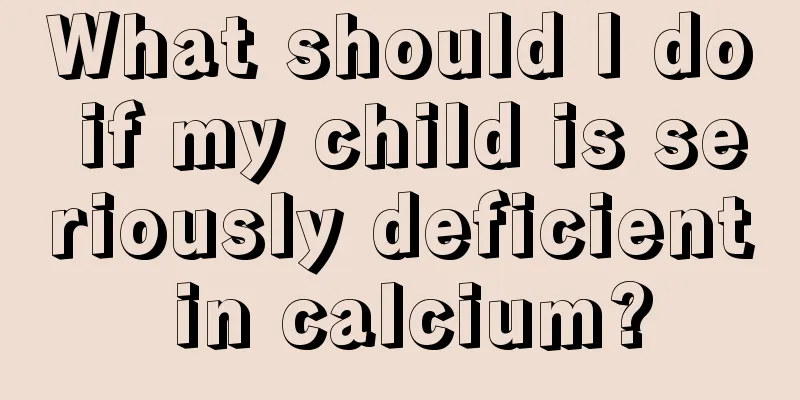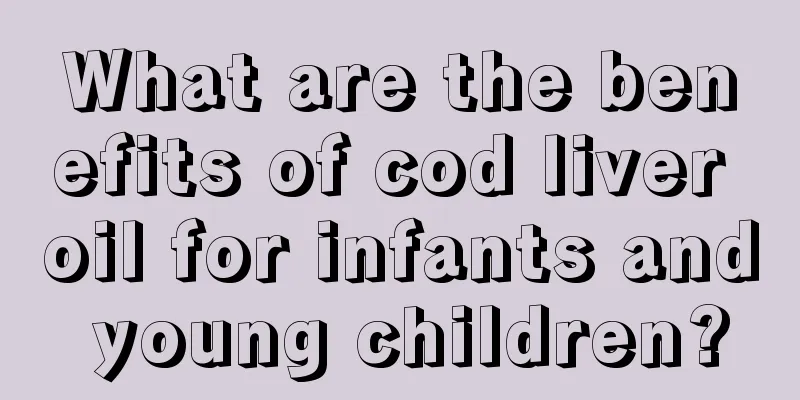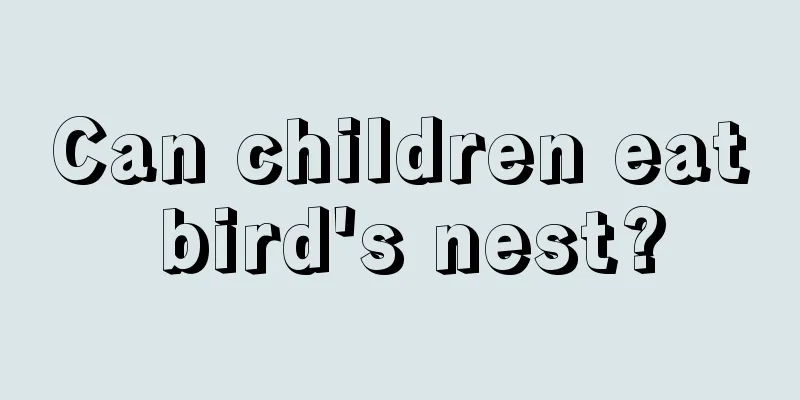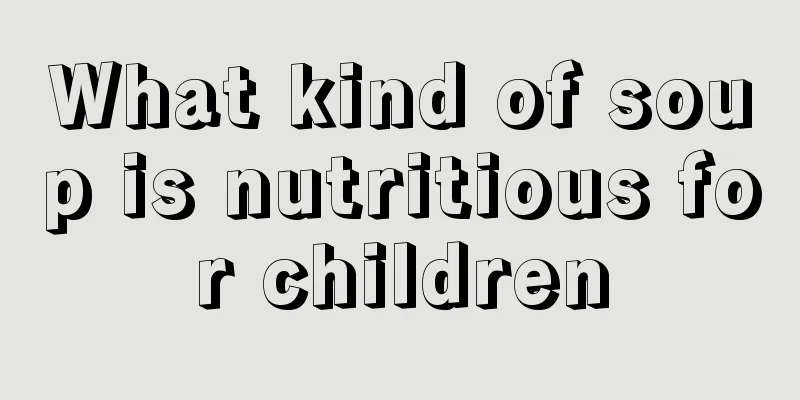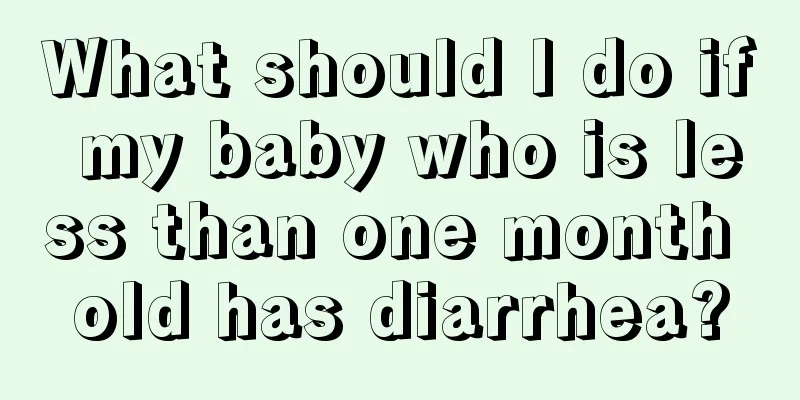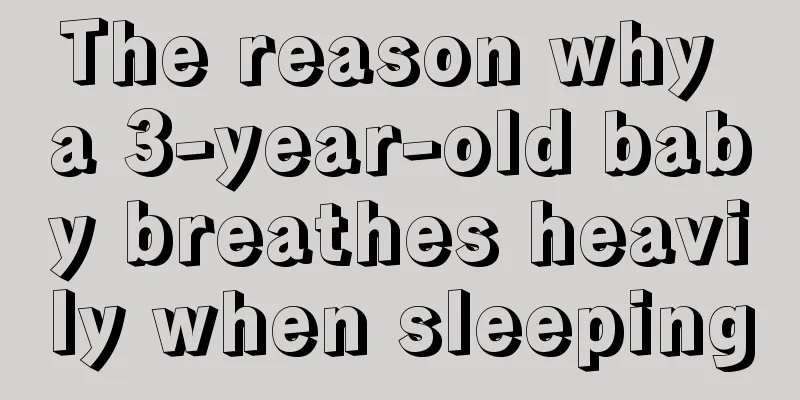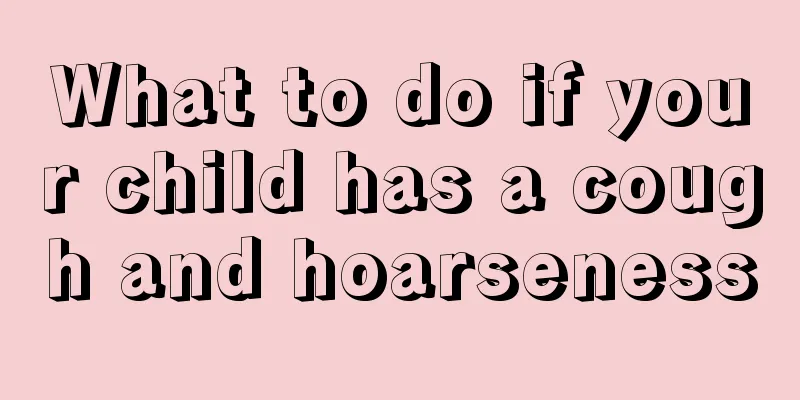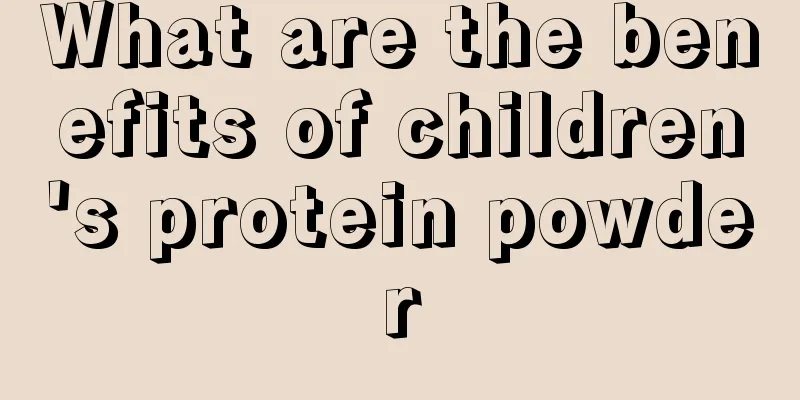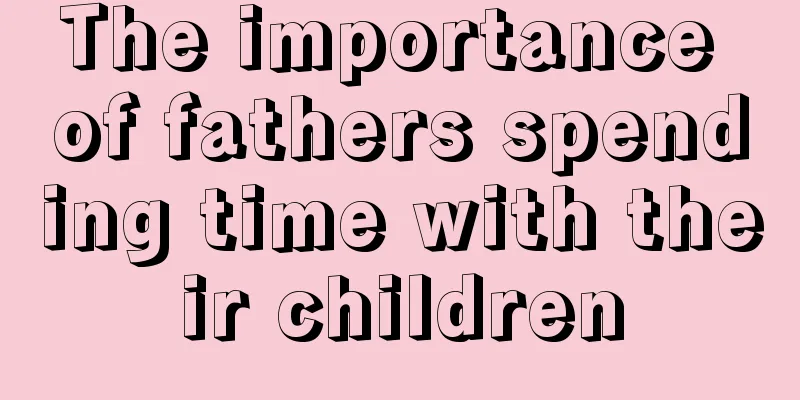The child suddenly foams at the mouth
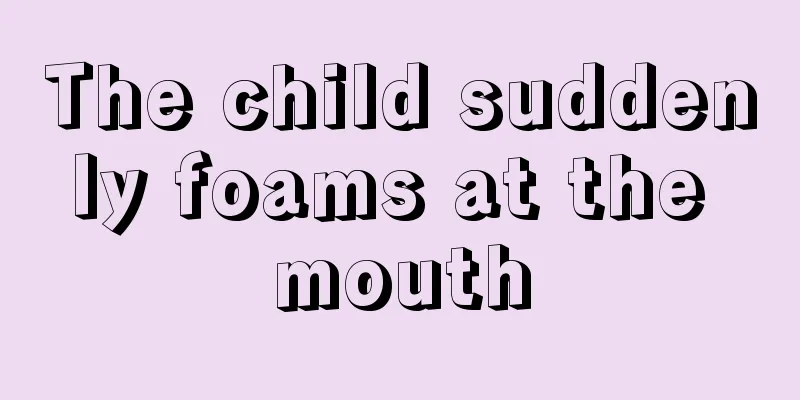
|
When taking care of their children, many parents are particularly worried that their children will catch a cold, so they will dress their children more warmly, or cover their children a lot when they sleep. In fact, this is incorrect. Children's organs are not fully developed, and their body temperature is higher than that of adults. When parents do this, it often causes children to have high fever convulsions. The child suddenly foams at the mouthIf a child suddenly foams at the mouth, it is probably due to a febrile convulsion, which is a common disease in children. Symptoms of febrile seizures in children Febrile convulsion, or febrile convulsion, commonly known as "convulsion", refers to a sudden rise in body temperature caused by the movement of the cerebral cortex and a large number of abnormal discharges of nerve cells, resulting in temporary involuntary contraction of the whole body or local muscles, accompanied by impaired consciousness. So, what are the symptoms of febrile seizures in children? A few people may have signs before a febrile convulsion occurs, such as extreme irritability, mental tension, frightened expression, sudden change in complexion; sudden rapid, irregular or stopped breathing, etc. (Newborns should pay special attention to this, otherwise it will cause serious brain damage). In most cases, when the body temperature rises suddenly at the beginning of a fever, due to the incomplete development of the motor neurons in the cerebral cortex, abnormal discharges and over-excitement of neurons occur, resulting in paroxysmal or transient brain dysfunction, often accompanied by impaired consciousness, and symptoms of autonomic nervous system abnormalities in sensation and behavior may also occur.Typical clinical manifestations often include sudden loss of consciousness or falling, brief involuntary twitching of the limbs, trunk and facial skeletal muscles, irregular or paused breathing, accompanied by cyanosis of the lips, fixed or upward eyeballs, staring or squinting, head tilted back or turned to one side, foaming at the mouth, clenched jaws, muscle rigidity, incontinence, which lasts for a few seconds or minutes and most of the time does not exceed 15 minutes. In severe cases, febrile status epilepticus may occur. Febrile seizures last for 30 minutes or recur repeatedly. Those who cannot recover consciousness between seizures are called status epilepticus, which is a critical manifestation of this disease. Most children fall asleep after the convulsion stops, but most wake up quickly after the convulsion and are generally in good condition with no neurological signs. In unilateral or localized convulsions, Todd's palsy may occur. After the convulsion stops, the affected limb will become transiently weak and return to normal within 24 hours. Emergency measures for febrile seizuresFirst, immediately lay the child on his side or tilt his head to one side. Never give the child medicine during a convulsion (to prevent suffocation). Second, unbutton your collar, keep your airway open, wrap a tongue depressor or chopsticks with soft cloth or handkerchief and place them between the upper and lower molars to prevent biting your tongue. At the same time, use a handkerchief or gauze to promptly clean the secretions from the child's mouth and nose. Third, use your fingers to pinch and press the child's Ren Zhong, Hegu, Neiguan and other acupoints for two or three minutes to control convulsions, and keep the surrounding environment quiet. Try to move the child as little as possible to reduce unnecessary stimulation. Fourth, cooling down can be done by cold compresses, warm water baths, or medication. Fifth, seek medical treatment nearby in a timely manner. Generally speaking, a child's febrile convulsion will be relieved in 3-5 minutes. Therefore, when a child loses consciousness and has systemic symmetrical tonic-clonic spasms or convulsions, parents should not rush to take the child to the hospital. Instead, they should wait until the child regains consciousness before going to the hospital. |
<<: Child foaming at the mouth while sleeping
>>: Is it good for baby rice cereal to contain sugar?
Recommend
What should I do if my child's transaminase is high?
Parents should pay attention to children's hi...
Why does my one month old baby cough?
Now many parents have reported that their childre...
What to do if your 2-year-old baby catches a cold and vomits
During the baby's growth process, the mother ...
How to care for your baby after the umbilical cord falls off
I think the happiest moment for every family is w...
What is the reason for the blood in the stool of a ten-month-old baby?
Mothers who have just had a baby should pay atten...
What medicine should children take for bedwetting at night
Bedwetting in children is very common in daily li...
Why does a child have a runny green nose?
Everyone will inevitably have a runny nose. The m...
What's wrong with a 5-year-old child having white spots on his face?
Vitiligo is a skin disease that mainly occurs in ...
Does my child need to be checked if he coughs up blood in the sputum in the morning?
We all know that children have small constitution...
What tests are done for newborns with cerebral palsy
Cerebral palsy is a common brain disease in daily...
Baby's neck is hot but forehead is not hot
Mothers are very concerned about their baby's...
What kind of eye drops are better for children to use when blinking?
Sometimes babies like to blink their eyes especia...
What are the key points of postpartum baby care
A few days after the baby is born, it is time to ...
Why does the baby hiccup?
Although hiccups are not a disease, it will be ve...
What are the symptoms of gastroenteritis in an 8-year-old?
Gastroenteritis is not unfamiliar to young people...
